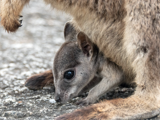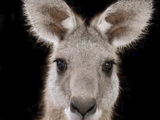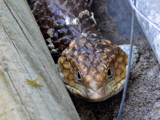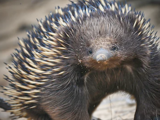Have you found a sick, injured, orphaned, displaced native animal?
When the wild calls out for help, Kanyana Wildlife answers, with expertise, compassion, and unwavering dedication. From the tiniest joeys to majestic birds of prey, no cry for assistance goes unheard.
Our team of wildlife warriors stands ready, equipped with the knowledge and resources to provide immediate aid to our native fauna in crisis. Together, we're the frontline responders in nature's greatest emergencies, ensuring every creature has a fighting chance at survival. Welcome to the heartbeat of wildlife rescue, where every rescue is a testament to the power of human kindness and the resilience of our precious wildlife.
If you have found an animal that needs help, please do not attempt to try and look after it yourself.
Native animals experiencing illness or distress need highly specialised care, so the best thing you can do is contact an experienced wildlife rehabilitation centre or your local vet. In fact, you may be fined if you keep a native animal for more than 72 hours.
All sick, injured and orphaned wildlife will be cold, shocked, highly stressed and dehydrated. Injured wildlife, other than orphans, will adopt what is called the preservation reflex. They will mask their pain and injuries to try and appear healthy until they are too sick to cope anymore, and native animals are particularly susceptible to stress - this alone, is enough to kill them.
Special Care Instructions
Your Safety
- When rescuing wildlife, do not endanger yourself or others during the rescue. If the animal is on the road, consider road safety first.
- Approach any wild animal with care. Kangaroos in particular, are capable of lashing out with their powerful back legs, even when severely injured. Most animals are able to inflict nasty bites and scratches especially when frightened and in pain.
- If possible, wear gloves and eye protection (sunglasses) when capturing injured wildlife.
- Remember that wild animals can carry a variety of diseases (especially when they are sick); including zoonotic diseases (can be transmitted to humans).
- Always wash your hands thoroughly after handling wild animals and use hand sanitizer when hand washing is not available.
- Any items used to capture and contain native wildlife should be either thoroughly cleaned or disposed of.
Warmth
- Most animals will be in shock and cold. Keep them in a warm place out of draughts. Nestlings particularly (preferably in their nest) need to be kept warm, even on a hot day. Place the nestlings in a small takeaway food container lined with tissues, cover with a dark cloth and place under a table lamp for warmth.
- Do not leave in the sun as they can be burned. A cold animal which is sick, injured or orphaned will stay cold unless it is heated by some external heat source. Wrapping an animal alone will not make it warm.
- Small animals and orphans can be wrapped in a blanket or jumper and put under your clothing, next to your skin. This is a safe, reliable source of warmth.
- Alternative emergency heat sources are hot water bottles, microwavable heat packs, plastic containers filled with warm water, electric blankets on low, or increased heating inside the car.
- Animals must not be placed directly onto a heat source (the heat source should always be wrapped in a cloth or towel).
- Take care not to warm the animal too quickly and avoid extreme fluctuations in temperature.
- A joey requires the same care as a premature baby.
Quietness
- Native animals are extremely susceptible to stress and this alone is often enough to kill them. Keep the animal as quiet as possible and away from loud noises such as radios, televisions, household machinery and children.
- Please keep domestic animals away from the animal. Whilst you may know your pet is harmless or that the animal is safe from your pet, the wild animal doesn’t and will become further stressed by the presence of your pets even if they are unseen.
- Covering the animal’s head is often beneficial if it becomes stressed.
Do not feed
- All native animals have highly specialised diets. The animal can do without food until you are able to get it to a qualified person (if there will be long delays contact your closest rehabilitator for advice).
- A shocked and cold animal is not concerned about food. Offering unsuitable food can further compromise the animal’s outcome.
- Attempting to feed an animal can cause further stress and even death from choking. Contrary to popular belief, Weetbix, bread or milk are not suitable food substitutes.
- Land birds are either Granivores (grain eaters), Nectivores (nectar), Frugivores (fruit), Insectivores (insects), Carnivores (meat), or Omnivores (eat a variety of food).
- Birds must be correctly identified in order to determine their diet. As well, diets can vary at different ages and times of year.
Water
- The animal may be severely dehydrated and, if you are not going to be able to immediately deliver the animal to a qualified person, you can offer a small bowl of lukewarm water but only if the animal will self-drink.
- Do not try to syringe water into an animal’s mouth unless you have been trained to do so. Inexperienced people syringing water are likely to aspirate the animal; causing further complications.
Qualified Care
- Please get the animal to a qualified person as soon as possible, either a Vet or a Wildlife Rehabilitator. Delays can be fatal. Phone the 24 hour Wildcare Helpline on 9474 9055 to be put in touch with the nearest Wildlife Rehabilitator.
- Please don’t keep the animal for a few hours or days before calling for help. By law, all wildlife are protected and may not be kept as pets. In 2019 DBCA introduced licences in relation to caring for wildlife. Sick, injured, displaced and orphaned wildlife cannot be held by the public for more than 72 hours.
- Some species must be reported to DBCA within 24 hours of being taken into care. For further information follow this link Licencing and Authorities for Fauna.
Call in the Animal Experts
Be a Wildlife Hero
Make a difference today by supporting Kanyana Wildlife.
Join us in safeguarding Australia's precious wildlife through rescue, rehabilitation, and habitat protection.
Your support powers our mission and your generosity directly impacts the lives of injured, orphaned, and displaced animals in need. Together, we can make a lasting impact on wildlife conservation right here in Western Australia.
Whether you donate, volunteer, or adopt, you're making a difference.


















